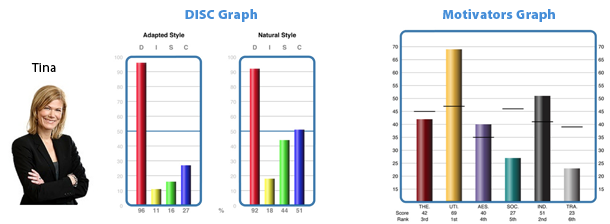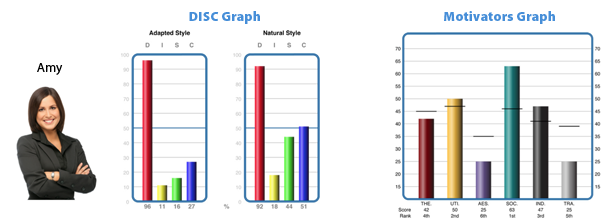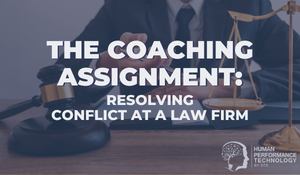How Do Motivators Affect Your DISC Profile
After having discovered the world of observable behaviour through the DISC profile, one might already have noticed that there are “gaps” in using DISC alone. For instance, why is one individual with a “High D” different from another individual with a similar pattern?

This is Tina, a manager. Tina is not liked by her team. She is described as pushy, demanding, confrontational, tactless and blunt. One staff member even describes her as unsympathetic, cold and insensitive. Tina is known for getting good financial results, but at the cost of high turnover. The company has a problem — people don’t want to work for Tina.
So the company brings in a consultant and they proceed to profile Tina using DISC. “Uh oh,” says the consultant, “Tina has an extreme ‘D’ — there’s your problem.”
The consultant has made a common (but false) assumption that the source of conflict between Tina and her team is due to her high D style. Big mistake.
If we had Tina’s Motivators profile, we could see that she has an extremely high Utilitarian (orange), and low Social (green). What this means is that she values financial results much more than helping others. This combination drives her to push her team to make more money, which is then intensified by her behavioural style.

This is Amy. She has exactly the same DISC style as Tina, but with one big difference: Amy is loved by her team. She is good at getting things done and holds everyone accountable for their actions, but she also values their input, is democratic in making decisions, and takes an active interest in each person as an individual. Her high Social (green) motivator drives her to support her team to help them get better, which is then intensified by her behavioural style.
Values are the true source of conflict. Behavioural (DISC) conflict is relatively easy to understand and educate people on, however, people seldom have a framework for discussing their values. When it comes to business partnerships, just as it does with dating and falling in love, people can overcome basic behavioural differences, but values are the thing that will make or break a relationship.
By looking at both DISC and Motivators together, these elements will give you a much richer picture of what’s going on. It is important to recognise the DISC is not everything and by only using the DISC profile you are limiting your ability to give your clients important information.

Theo Winter
Client Services Manager, Writer & Researcher. Theo is one of the youngest professionals in the world to earn an accreditation in TTI Success Insight's suite of psychometric assessments. For more than a decade, he worked with hundreds of HR, L&D and OD professionals and consultants to improve engagement, performance and emotional intelligence of leaders and their teams. He authored the book "40 Must-Know Business Models for People Leaders."

/layers%20of%20performance%20(layer%208%20_%20Behaviour).png?width=374&name=layers%20of%20performance%20(layer%208%20_%20Behaviour).png)

We Would Like to Hear From You (0 Comments)